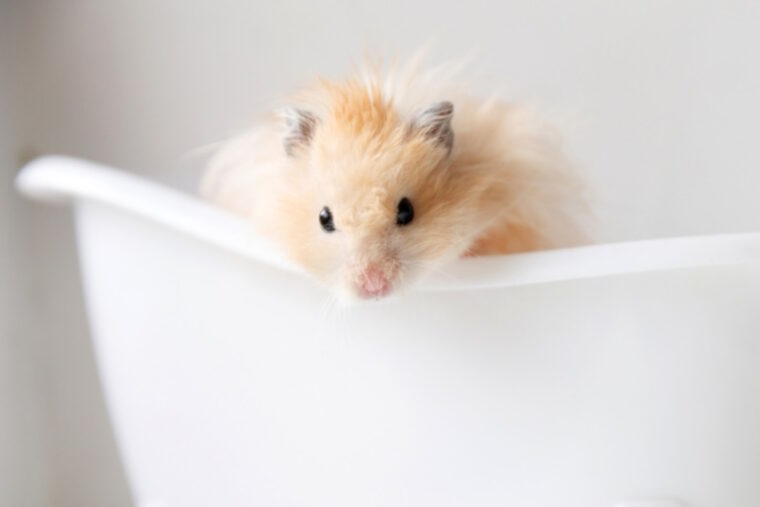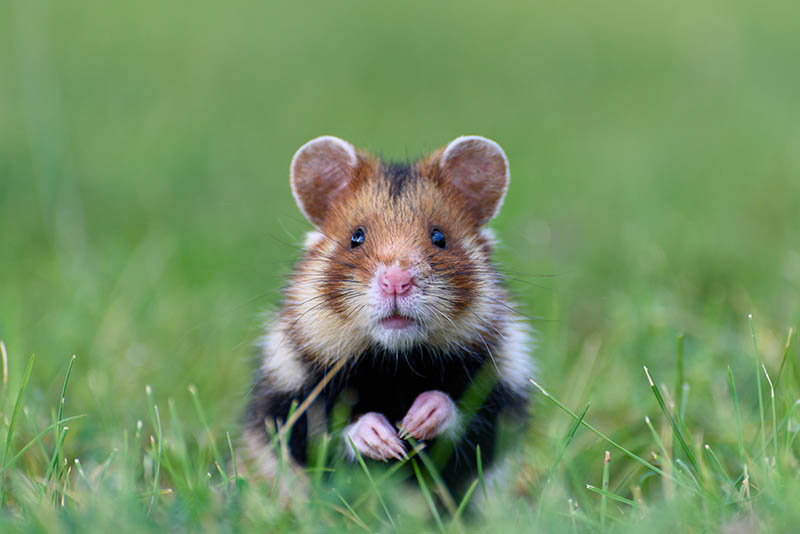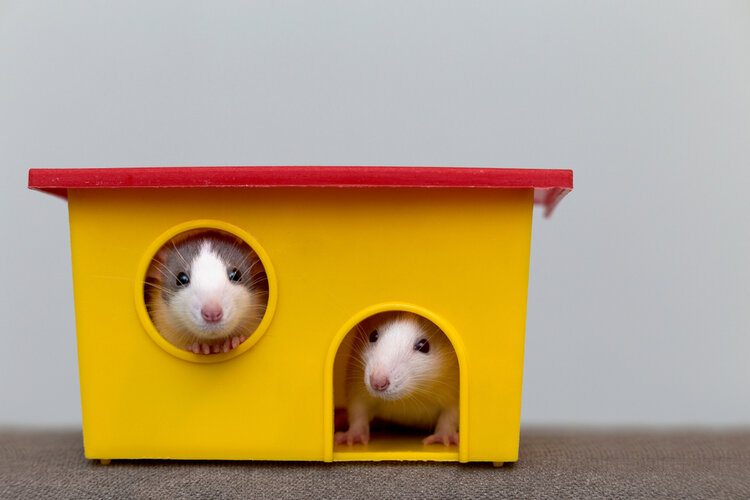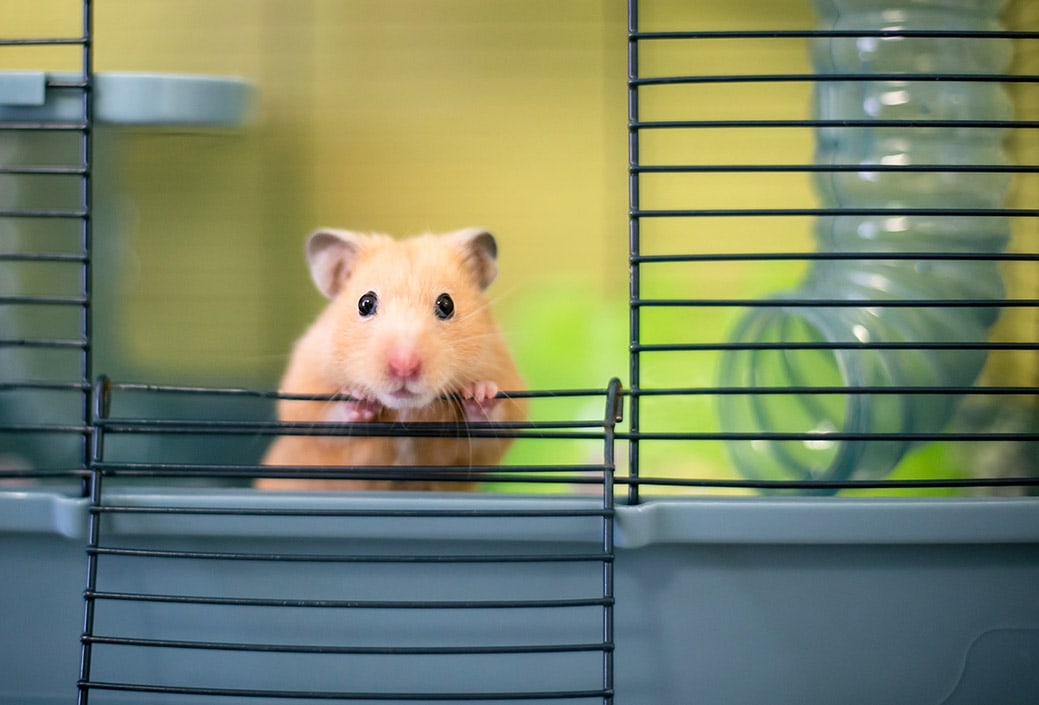
Grooming and bathing are vital parts of pet care for many animals, particularly dogs. You might also think it’s necessary with ones that live in cages, such as hamsters. After all, you undoubtedly clean out their cage regularly, so why not do the same for your pet’s fur? In the wild, hamsters may get wet. However, bathing is not necessary for a self-grooming animal like this rodent and could even be dangerous if not done correctly.
The Wild Hamster
The Golden or Syrian Hamster (Mesocricetus auratus) lives in the open steppe habitat of Turkey and Syria. The seasonal climate has hot, dry summers and cold, wet winters. Summers can approach 100℉ or higher, with the cooler months getting down to 50℉ or less. Precipitation is low, with annual totals of around 13 inches.
These temperature extremes, combined with moisture, can create challenging conditions for wild hamsters. Consequently, these animals evolved ways to survive. In cold temperatures or when food is scarce, they can go into a state of torpor (an involuntary state of reduced mental or motor activity). This is a survival technique in order to conserve resources to handle these circumstances.
The takeaway message is that these animals survive because they can slow their metabolism and lower their body temperature to wait out adverse environmental pressure, like cold and wetness. That reduces their risk of the consequences of venturing out of their burrows unnecessarily. This is not a state that we want our pet hamsters to enter. So, what would happen if a hamster got wet?

The Risks of a Hamster Getting Wet
If you’ve ever been outside on a chilly, rainy fall day, you are keenly aware of how uncomfortable it is. It might even feel colder to you than a winter day. It’s the combination of wet and cold that makes you feel that way. It’s the same with hamsters, only they have a thick coat of fur that also gets wet. So giving your hamster a bath,may trigger your hamster to go into torpor. This can be scary for hamster owners as hamsters in torpor can look like they’ve passed away.
The other concerns lie with the animal’s ability to cope. It’s worth noting that most of our pet hamsters descended from three littermates caught in 1930.1 There isn’t a lot of genetic variability in them, although selective breeding for various colors exists. Wild hamsters evolved to escape unfavorable weather conditions , leaving animals with little genetic capability to cope with getting cold and wet.
A wet hamster isn’t going to “catch a cold.” Instead, the stress can leave the rodent at risk for bacterial infections, including respiratory ailments like pneumonia. Remember that these animals don’t like change, whether it’s their food or the sudden shock of getting wet. That’s not unexpected with a prey species. Of course, a stressed pet is also more likely to bite and scratch.

Grooming Your Hamster
We mentioned that hamsters are self-groomers. They do an excellent job of keeping themselves clean, not unlike a cat. You should comb long-haired varieties to keep them mat-free. You may also have to trim your pet’s nails occasionally. However, baths are not necessary and are potentially dangerous for your hamster. Keeping up with routine cage maintenance and ensuring water spills or soiled bedding is removed daily will help your hamster remain clean. If your hamster gets wet by accident i.e. the water bowl toppled over, dry them thoroughly, give them extra bedding to make a cozy bed, and keep them in a warmer part of the house away from draughts. Keep a close eye on them over the coming days and see a veterinarian if you notice anything untoward.
Final Thoughts
Pet hamsters are descendants of animals that live in a dry, albeit harsh, climate. These arid conditions didn’t provide environmental stimuli for these rodents to adapt to wet conditions. Instead, the cold and wet encourage them to conserve resources by entering torpor, and avoid circumstances that could put them at a greater risk of disease and predation. Hamsters shouldn’t get wet or bathed for many of the same reasons.
Featured Image Credit: Vladfotograf, Shutterstock








